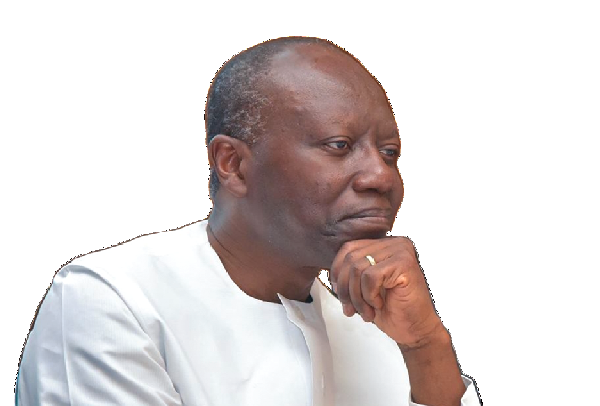
Ghana not downgraded to low-income economy — Ministry
The Ministry of Finance has stated that Ghana’s economy has not been downgraded from a lower-middle income level to a low-income developing country by the International Monetary Fund (IMF).
It said in a press statement issued yesterday that reports to the effect that the economy had been downgraded were unfortunate as “Ghana is still classified as a Lower-Middle Income Country.”
The ministry was reacting to reports by some media houses that the IMF fiscal monitor, a periodic publication by the Bretton Woods institution, had reclassified the country to a low-income developing country, a lower category of the lower-middle income country status that the country attained in 2011.
World Bank ranking
In the statement issued by its Public Affairs Department, the ministry said: “We wish to state that Ghana continues to be categorised as a “Lower-Middle Income Economy” based on the widely-recognised classification of the World Bank and the United Nations (UN).”
“The IMF Fiscal Monitor does not aspire at classifying countries by income level. Instead, it analyses the latest public finance developments, updates medium-term fiscal projections, and assesses policies to put public finances on a sustainable footing.
Advertisement
It said the groupings of economies presented in the Fiscal Monitor’s Methodological and Statistical Appendix served an analytical purpose only.
“In this appendix, Ghana is conveniently categorised as a “Low-Income Developing Country (LIDC)”, like other Lower-Middle Income Economies such as Cote d'Ivoire, Kenya and Nigeria,” the statement explained.
Positive strides
According to the statement, the country was making positive strides in her economic and human development indices and misinformation were injurious to the economy.
“It is unfortunate that the media houses in Ghana did not contact the ministry for verification, neither did they contact the offices of the World Bank and/or the IMF in Ghana for corroboration,” the statement said.
It added that public misinformation of that magnitude had serious implications for the international investor community, especially coming on the heels of a major and successful Eurobond issuance two weeks ago,” it said in reference to the $3 billion Eurobond that was issued on March 30, this year.
It recalled that the government had put in place measures, including the GH¢100 billion Ghana CARES Obaatanpa programme to provide the fiscal stimulus to drive growth and economic transformation post COVID-19 pandemic.
It said Ghana was projected to maintain a positive economic growth of 0.9 per cent in 2020, representing one of the few “pockets of resilience” on the continent.
“In 2021 and over the medium term, the government expects gross domestic product (GDP) growth to average five per cent and the deficit to decline to under per cent by 2024,” the statement added.
IMF position
When the media reports on the purported downgrade of the economy broke last Monday, the IMF Resident Representative to Ghana, Dr Albert Touna Mama, described the publication as fake in a post on social media platform, Twitter.
In a subsequent email to the Daily Graphic, the fund explained that the reports were misleading and untrue.
“Ghana has been classified as lower-middle income since July 2011 and remains as such,” it said, adding that the IMF’s classification of countries into advanced economies, emerging market and middle-income economies, as well as low-income developing countries was for analytical purposes.

